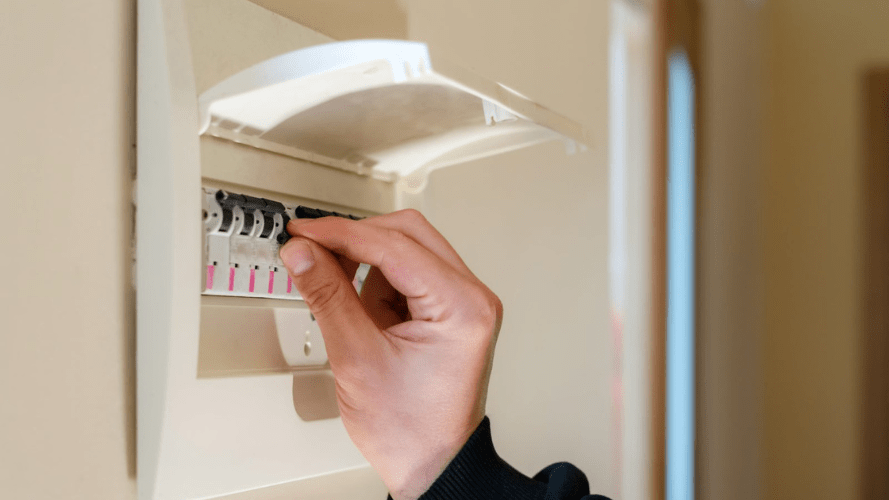Electrical safety checks are being extended to cover all existing tenancies in April – how can letting agents prepare?
Each year, there are a range of dates that letting agents need to be aware of when it comes to ensuring landlords’ properties are compliant with the latest changes to legislation. In just a few weeks’ time, a key deadline relating to electrical safety passes and it’s something all agents and landlords need to be prepared for.
From April 1, The Electrical Safety Standards in the Private Rented Sector (England) Regulations 2020 are being extended to cover existing tenancies. Up until this date, the regulations – which came into force in July 2020 – have only been mandatory for new tenancies.
Below is an overview of the extension to the regulations and how you can help your landlords to remain compliant.
What do mandatory electrical checks entail?
Mandatory electrical safety checks require an Electrical Installation Condition Report, known as an EICR, to be carried out by a reputable tradesperson. Alongside getting an EICR, landlords must also ensure that electrical installations are inspected and tested at least every five years by a qualified professional.
The main installations inspected as part of mandatory electrical checks include:
- Fuse boxes
- Light fittings
- Wiring
- Sockets
- Fixed showers
- Extractor fans
Contractors will be looking for issues such as defective electrical work, overloaded installations, and a lack of earthing or bonding. They will also be checking for fire hazards and potential for electric shocks in the rental property.
Who should carry out the checks?
The electrical safety checks should be carried out by a reputable tradesperson who is part of a competency scheme.
Alternatively, the checks can be carried out by a contractor who signs a checklist that confirms they have the competency to complete the inspection.
What do letting agents and landlords need to do?
Once the inspection has been completed, the landlord or agent working on their behalf must obtain a copy of the report.
This will indicate whether any work is needed and set the date for the next set of checks which is likely to be in five years’ time.
In the scenario that the professional suggests repairs or further inspections are required, they must be completed within 28 days (or a shorter period if required by the report).
After the work has been finished, landlords and agents must provide written confirmation to renters and their local authority within 28 days.
The report must be supplied to new tenants before they move in to the property or from April 1 2020, to existing tenants within 28 days of the inspection.
Moreover, if tenants or your local authority request a copy of the report at any time, it must be provided within 28 days of that request.
What is happening in April?
Since last summer, landlords and agents have been required to organise electrical safety checks for all new tenancies. However, from April 1 2021 the regulations are being extended to cover all existing tenancies. This means electrical checks will be required for the vast majority of rental properties in England.
Failure to comply with the regulations could see landlords or their agents hit with a significant financial penalty.
There are some exemptions which don’t require electrical safety checks, including:
- Holiday lets
- Long leases
- Accommodation shared with a landlord or their family
- Student halls
All other tenancies, including statutory periodic tenancies, fixed-term agreements and contractual periodic tenancies, will require electrical safety checks from April 1 2021 or upon renewal, whichever comes sooner.
Be prepared for tradespeople to be in high demand
Over the coming weeks, thousands of rental properties will require electrical checks to be carried out in order to comply with the extension of the regulations.
This high demand for tradespeople could lead to problems in getting checks completed in time. With this in mind, it’s important that if you haven’t already, you start organising checks for your landlords’ properties as soon as possible ahead of the extension.
With a potential shortage of tradespeople available, it will prove beneficial to have a list of reputable contractors in case the firms you usually work with are fully booked up.
What’s more, it could also be worth checking out a national provider of EICRs, which may be better suited to handling increased demand and turning checks round quickly.

